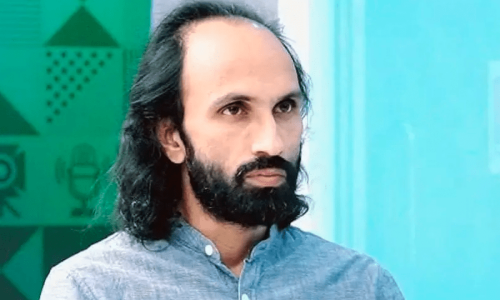IS inflation on its way out? The Consumer Price Index showed that inflation dropped to 23.1pc in February from 28.3pc the previous month, and 31.5pc a year ago, raising hopes. It is the lowest CPI reading recorded by the Pakistan Bureau of Statistics in the last 20 months. Inflation peaked at 38pc last May. The PBS did not observe a month-over-month change in prices last month, reporting a broad-based decrease in the pace of price rise on account of falling food inflation, coupled with the high base effect of the last fiscal. The rates decreased in both the urban and rural areas, with core inflation, or non-food and non-energy inflation, also down from their higher levels. And yet, there will be little respite for households anytime soon, as overall price levels and the cost of living remain elevated.
Nevertheless, the drop in inflation seems to have encouraged some — such as a former finance minister, who called the reduction in the inflation rate “wonderful news” — to renew calls for early rate cuts to “reduce government deficit and also provide a much-needed respite to industry and consumers”. The calls for rate cuts are based on the assumption that the pace of increase in the prices of goods and services will slow down further over the next several months due to a high base effect, falling demand, easing of supply constraints and plunging global commodity rates. It means that if the trend witnessed last month holds, we should expect the State Bank to start monetary easing soon. However, the inflation outlook still faces risks that include a further increase in domestic energy prices, food supply shocks and an upswing in international commodity prices due to the geopolitics of the Middle East. Hence, inflation expectations remain elevated, despite recent improvements. On top of that, consumers must brace themselves for Ramazan inflation. Therefore, it might be too early to expect the State Bank to start to decrease borrowing costs.
A rate cut without a consistent drop in inflation might also not sit well with the IMF whose support is crucial for stabilising Pakistan’s external sector. We are also not aware if the IMF agrees to a new extended programme — and how quickly. What is certain is that any new programme will be accompanied by more stringent conditions. A report in a local paper claims that the IMF has advised the FBR to significantly increase the income tax burden for both salaried and non-salaried segments and tax the contribution of private employers to their workers’ pension fund, thus enabling the FBR to collect additional revenue. The proposal does not take into account the burden of inflation on the salaried classes. If implemented, this could prove to be the proverbial straw that broke the camel’s back.
Published in Dawn, March 3rd, 2024











































Dear visitor, the comments section is undergoing an overhaul and will return soon.